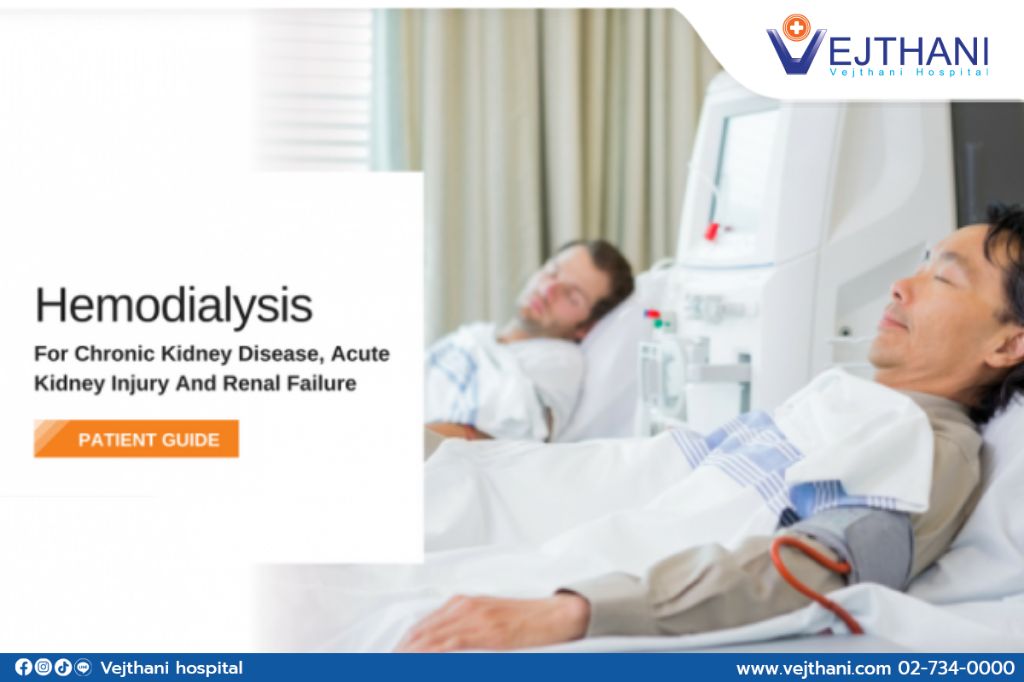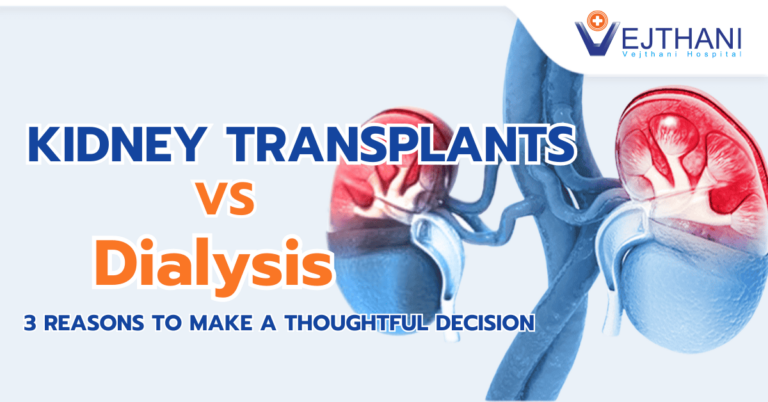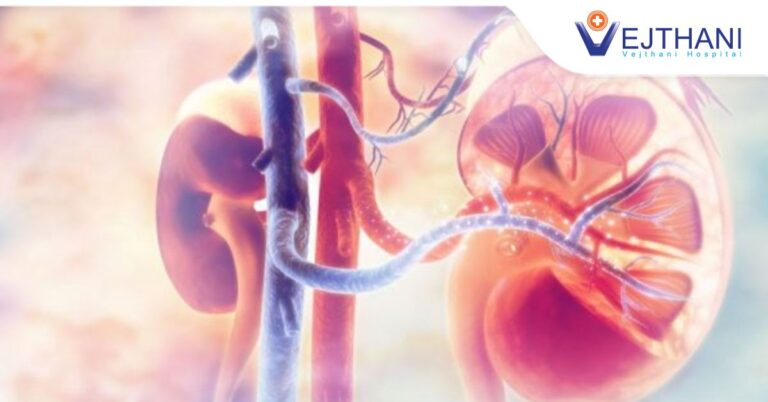

Hemodialysis is one of the methods used as renal replacement therapy for chronic kidney disease, acute kidney injury or intoxicated patients if there is any indication.
The main strategy of hemodialysis is a diffusion process across the semipermeable membrane due to the difference in concentration of waste products and electrolytes between patient’s blood and dialysis fluid. Hemodialysis removes waste products and excess fluid from the patient’s blood. Since semipermeable membrane allows only small molecules to pass through, the larger molecules like proteins are kept in the patient’s blood. The process is usually performed in the hospital under a good care of physicians, nurses and healthcare personnel. Generally, hemodialysis takes 4 hours each time and patients should do it 2-3 times per week.
When to start hemodialysis in Chronic Kidney Disease (CKD)?
According to the 2015 Kidney Disease Outcomes Quality Initiative (KDOQI) guidelines, hemodialysis should be initiated when CKD patients develop uremic related signs and symptoms such as loss of appetite, malnutrition, uncorrectable electrolyte, and acid disturbance or fluid overload. Additionally, ‘The 2012 Kidney Disease: Improving Global Outcomes (KDIGO)’ guidelines state that the symptoms that lead to hemodialysis initiation usually appear when the renal function or estimated glomerular filtration rate (eGFR) is 5-10 ml/min/1.73 m2.
When to start hemodialysis in acute kidney injury?
There are various modalities of renal replacement therapy for severe acute kidney injury including intermittent hemodialysis, prolonged intermittent renal replacement therapies, and continuous renal replacement therapy. The physicians will choose the best modality that is suitable for the patient’s disease and clinical conditions.
The indications for initiation are refractory fluid overload, severely high blood potassium level, signs of uremia such as pericarditis or alteration of consciousness, severe metabolic acidosis. In the absence of these definite indications, the optimal timing of hemodialysis initiation is controversial. The physicians have to scrutinize all of the information which includes the causes of kidney failure, previous renal function, and co-morbidities.
When to start hemodialysis in intoxicated patients?
Apart from decontamination and antidotes, enhanced elimination by hemodialysis and hemoperfusion are used to help the selected intoxicated patients. The mentioned toxins are characterized by low molecular weight, a small volume of distribution, low protein binding efficacy, high water solubility, low endogenous clearance and high dialysis clearance relative to total body clearance.
Hemodialysis at Vejthani Hospital
Vejthani Hospital provides all modalities of hemodialysis including intermittent hemodialysis, prolonged intermittent renal replacement therapies, continuous renal replacement therapy, and hemoperfusion for our valued patients. With the dedicated care of our teams, we offer the holistic hemodialysis service. Moreover, our urologists and vascular surgeons are available for both living related kidney transplantation and vascular access surgery.
The Hemodialysis Center at Vejthani Hospital has been certified by The Royal College of Physicians of Thailand. Our center provides treatment for both chronic and acute patients with modern, clean and safe hemodialysis equipment under the close supervision of expert nurses and physicians 24 hours. The center facilities include 12 state-of-the-art imported Dialysis Machines, Reverse Osmosis water treatment system dedicated to the Dialysis Unit meeting the international standards (AAMI), Conventional Hemodialysis and On-line Hemodiafiltration (HDF), International Infection Control and Sterilization Procedures and specially trained dialysis registered nurses.
For more information, please contact
Hemodialysis Center, 4th Floor, Vejthani Hospital
Call: (+66)2-734-0000 Ext. 5021
English Hotline: (+66)85-223-8888
- Readers Rating
- Rated 5 stars
5 / 5 ( Reviewers) - Spectacular
- Your Rating























